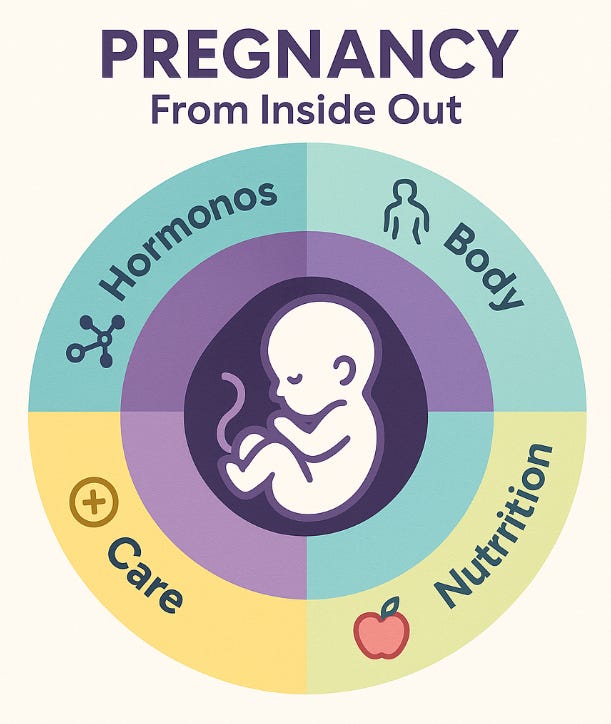Abstract:
This comprehensive short dive provides a trimester-by-trimester overview of pregnancy, blending medical research with practical advice. Each section (First, Second, Third Trimester) details common symptoms and bodily or emotional changes, explains the scientific reasons, and offers evidence-based strategies for managing discomforts. I highlight what is considered normal versus what warrants medical attention, supported by current medical guidelines. I also discuss the variability of pregnancy experiences and why symptoms can differ, needs specific to each trimester are outlined, including key nutrients (folic acid, iron, calcium, DHA, etc.) and safe dietary practices. The goal is an accessible yet academically grounded resource for expectant parents. All medical terms are clarified in plain language, and recommendations are based on Western healthcare references to expert guidelines (e.g., ACOG, CDC). Visual tables and charts are included to summarize important information.
Introduction
Pregnancy is typically divided into three trimesters, each three months in length, marking distinct phases in fetal development and maternal changes. While the journey from conception to birth spans roughly 40 weeks (gestational age), the experience of pregnancy evolves with each trimester in terms of symptoms, maternal physical changes, and medical considerations. This short dive will explore each trimester in depth, covering the common symptoms (and why they occur), emotional fluctuations, necessary lifestyle adjustments, and nutritional requirements. Importantly, I will distinguish normal changes from warning signs that may require a doctor’s attention, based on up-to-date medical guidelines.
Every pregnancy is unique, and symptoms can vary widely from person to person. Some individuals sail through with minimal discomfort, while others experience intense symptoms. Scientific research suggests that genetic factors, hormonal sensitivity, and even cultural or lifestyle differences contribute to this variability. For example, studies have linked certain hormones like GDF15 and variations in hormone receptors to differing severities of morning sickness. I will discuss such findings to explain why experiences differ. Throughout this short dive, medical terminology is accompanied by simple definitions, and recommendations are grounded in sources like peer-reviewed studies, obstetric textbooks, and expert organizations (e.g., the American College of Obstetricians and Gynecologists, Mayo Clinic, CDC). My aim is to provide a formal yet reader-friendly report that empowers expectant individuals with knowledge and practical tips for a healthy pregnancy.
I begin with the first trimester, when the foundations of new life are formed and pregnancy often makes itself known through various early symptoms.
Keep reading with a 7-day free trial
Subscribe to The Muslim Mom's Corner to keep reading this post and get 7 days of free access to the full post archives.




